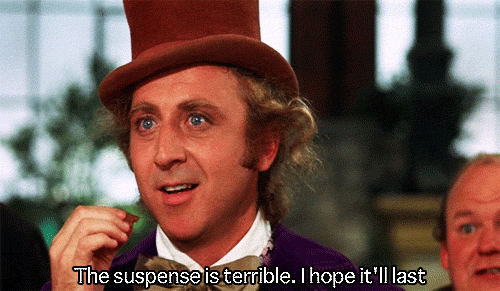Jonathan Franzen had some thoughts, I guess. Insufferable, pretentious thoughts that he felt like everyone else should hear. They were, unsurprisingly, on the topic of writing advice.
Now, when men who describe themselves as novelists have something to say, they have to say it in the most arrogant, pseudo-philosophical way they can possibly hope to achieve. Franzen, the poster boy for the mediocre white male novelist, employs that aesthetic heartily in his “10 Rules For Novelists”. And far be it from me to criticize a cis white male pissing commandments from his ivory tower and onto the worthless peasants below, but every damn item on his list is asinine.
1. The reader is a friend, not an adversary, not a spectator.
…no, the reader is a reader. It’s right there in the word. I agree that readers aren’t adversaries, despite the attitudes of many thin-skinned authors. But friendship is a two-way obligation that your readers are not committing to when they buy your books. They’re not looking to experience you, they’re wanting to experience your work. I would argue that they are spectators. There’s nothing wrong with being a spectator; most of the entertainment we consume, we consume passively, from baseball games to yes, even books. It’s still an exciting symbiotic relationship, but it’s one that doesn’t make the reader beholden to the author. Which is exactly as it should be.
2. Fiction that isn’t an author’s personal adventure into the frightening or the unknown isn’t worth writing for anything but money.
My first thought when I read this item was, “Bold of you to assume that writers are making money.” But the real issue with this statement is that a successful author with a rumored net worth in excess of ten million dollars has the luxury of looking down on money, a fact which Franzen has notoriously refused to acknowledge in the past. In 2015, Franzen declared that despite his wealth, “I spend my time connected to the poverty that’s fundamental to mankind, because I’m a fiction writer.” I don’t believe for a hot second that Franzen is actually connected to poverty in any way other than romanticizing the idea of it, but even if he did choose to spend his days thoughtfully listening to and sympathizing with residents of a tent city, he would still go home to warmth, shelter, and food stability. He can flirt with the notion of rejecting money because he has it.
I can practically hear Pulp’s “Common People” playing the background as Franzen obliviously penned this entry.
Plus, if every piece of fiction was “an author’s personal adventure into the frightening or the unknown,” then all of literature would be deeply boring. There would be no Alice’s Adventures In Wonderland, no A Midsummer Night’s Dream, for god’s sake, there would be no fucking Star Wars. In one sentence, Franzen somehow manages to sneer at writers who make money (as he does, in massive amounts) and implies that all books should be navel-gazing glimpses into the mind of the author.
And let’s not forget that the giant advances being handed to all those male authors so they can have their artistic adventures into the unknown are being paid by the sales of genre fiction authors, many of them women. If Franzen would rather not have the money, we’d gladly take it, rather than see it squandered on a demographic who spend eighty percent of their writing time trying to come up with the perfect adjective to describe just how sorrowful a female character’s breasts look at a cocktail party.
3. Never use the word then as a conjunction—we have and for this purpose. Substituting then is the lazy or tone-deaf writer’s non-solution to the problem of too many ands on the page.
I don’t know, Jon. Which sounds like a more pleasant afternoon: “We’ll eat pork chops and do the autopsy,” or “We’ll eat pork chops then do the autopsy?” Maybe it’s because I’m not a serious artist, but I can’t think of a way to employ “then” as a conjunction in the first place. It’s an adverb; if you put it in a sentence, it’s going to function as an adverb whether that’s your intention or not. Also, since when are “too many ands” a problem? “And” is a nearly invisible word unless it’s part of a run-on sentence.
4. Write in third person unless a really distinctive first-person voice offers itself irresistibly.
The fact that Franzen believes this is one of his writing rules belies just how little he thinks of every other writer on the planet. “Surely this a point I need to make to other novelists,” he thinks, tapping his pen against his lips. “There may be people out there writing in first-person who are doing so without even thinking that third-person might be an option. I must help them!”
Yes, Jonathan, dear. We already know that first-person narratives are only workable if the voice is distinct. The same can be said of third-person, however.
5. When information becomes free and universally accessible, voluminous research for a novel is devalued along with it.
I’m not sure what point he’s trying to make here. Is he suggesting that information should not be free and universally acceptable, lest it devalues the work of a novelist who is granted access to it? Or is his assertion that research is no longer valued, so fuck it? “People have way too much access to knowledge” is an odd stance for an author to take, especially if that author just recoiled at the idea of someone writing something that isn’t an adventure into the unknown. What would the point of such a journey be, if the author and reader aren’t expected to learn something from it? And what does it say about Franzen’s view of society–perhaps his view of the impoverished people with whom he feels so connected–if he endorses the gatekeeping of knowledge?
On the other hand, maybe he really is saying that it’s pointless to do research now that it’s been devalued. Maybe he’s super into badly researched, inaccurate books.
6. The most purely autobiographical fiction requires pure invention. Nobody ever wrote a more autobiographical story than The Metamorphosis.
As with number four, are we talking about Franzen’s personal rules or the rules of fiction entirely? Of course, fiction requires invention. It’s what fiction is. Although, I would argue that with the sheer volume of modern literary novels about privileged men having extramarital affairs with bewitching younger women is a strong counterpoint to the claim that all autobiographical fiction must contain elements of “pure invention.” Those narratives seem to sell well without anyone turning into a giant bug.
7. You see more sitting still than chasing after.
I’m 99.9% sure I’ve seen this as an inspirational quote on a poster in a dentist’s waiting room. If not, then it should absolutely be an inspirational quote on a poster in a dentist’s waiting room. But this feels like a subtle manipulation, tantalizing aspiring authors with the prospect that they will gain a deeper understanding of themselves and their craft by simply declining to pursue tangible goals. Coupled with Franzen’s other points disparaging authors who write for money and seemingly encouraging a state of mass of ignorance, I have to wonder about his motive for suggesting that inaction is preferable to forward momentum.
8. It’s doubtful that anyone with an Internet connection at his workplace is writing good fiction.
Sir, are you aware that you’ve posted this list to the Internet?
This one ties in so neatly to numbers five and two. Authors use the internet to publish, to network, and to publicize. For many working writers–you know, those dirty ones who put money ahead of the Dark Night of The Soul we’re supposed to be experiencing with every word we put on the page–the internet is a tool used in our work. Of course, therein lies the problem: Franzen has already stated that he apparently doesn’t want just anybody to have access to information with which to research their novels, lest it devalues…researching novels. It only makes sense, then, that he would oppose a medium that puts knowledge at the fingertips of anyone with an internet connection.
The internet also allows writers the opportunity to contact agents and submit manuscripts to publishers without paying for postage. New York Times bestselling author Sherrilyn Kenyon once described having to borrow three dollars from a neighbor so she could send a partial to an editor who’d requested it. She pilfered a stamp from her husband’s wallet: “For one twenty nine cent stamp, my entire life was forever changed.” For someone with Franzen’s money, three dollars is less than nothing. Twenty-nine cents is not existent. But for a writer actually living in, instead of comfortably adjacent to a nebulous concept of, poverty, that $3.29 was a near impossible hurdle. Access to the internet changes that. For many, it has blown open wide the numerous gates and checkpoints barring access to publication–obstacles that Franzen will never face again. His belief that authors who use the internet to work are are lesser or doing it wrong is simply the panicked raving of a man facing what he perceives as a threat to his once-guaranteed superiority. I can imagine him sitting up in the night, bathed in an icy sweat, gulping for air and gasping, “My god! Just anyone can be a writer!”
Judging from his worry that access to knowledge might devalue his work, it’s fairly clear that Franzen is of the view that only certain people should be allowed into the hallowed halls of authordom. And after all, if poor people manage to succeed, who will he study for his frightening and unknown adventures?
9. Interesting verbs are seldom very interesting.
So far, this list has read as though it were written by a suddenly grammar-conscious Yoda hell-bent on eliminating the competition.
10. You have to love before you can be relentless.
When all else fails, start transcribing fortune cookies.
Can we please stop lauding white male authors with loads of privilege and archaic notions as the bar for intelligence, depth, and talent in fiction? Could we consider no longer hanging on their every self-indulgent word? Or, to put it more plainly, can we stop vigorously fellating any authors whose Wikipedia entries contain the word “Americana?” Franzen’s demographic is one that has never been denied a platform. It won’t hurt to hear from constructive voices every once in a while. Voices eager to share genuine advice, not smug, thinly veiled criticism of other authors. We can learn more from people who acknowledge their privilege than we can from those who cling to it like a liferaft, adrift in a sea of their own insecurity.


